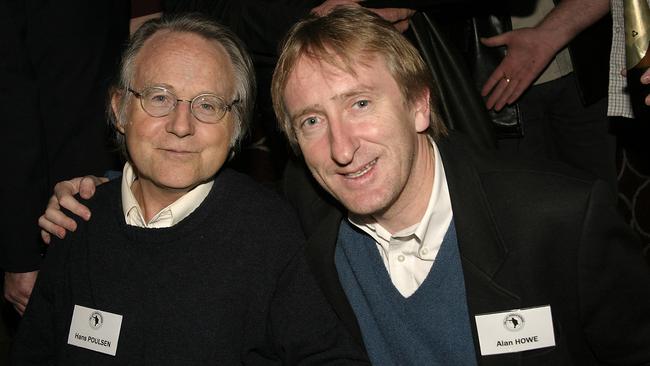Hans Poulsen: Gentle songwriter a playful force behind pop classics
Like Paul McCartney, Hans Poulsen heard Little Richard’s Long Tall Sally as a boy, and his path to a life in music was set.

Hans Poulsen had his head in the clouds. But they were clouds he had painted. A hippie before San Francisco invented them, he had a permanent, singular vision for what made music beautiful and he made beautiful music. For a time he accidentally strolled into the focus of the ever restless fashions of popular music and became a star. And he could have stayed. But he preferred to stay Hans Poulsen.
His parents played instruments – his father slide guitar, his mother ukulele – and owned a radiogram with a 78 shellac disc of Little Richard’s Long Tall Sally. Poulsen was 11 when he heard it.
A 14-year-old Paul McCartney heard that 78 the same year and was similarly struck.
To honour his Danish heritage, Poulsen changed his name to Hans Sven Poulsen and his first band, the Rimfires, played the hits of the day. He then formed the 18th Century Quartet, an adventurous outfit in which he played guitar and mandolin in an acoustic setting. He started writing songs and soon had dozens. It was at the height of Beatlemania and, while popular live, the six-member band’s singles stalled without attention. An electric version of the 18th Century Quartet came and went and Poulsen started to place some of his songs with others.
John Farnham was the hottest singer in the country after the novelty Sadie, The Cleaning Lady became the biggest selling Australian single of the decade. He followed this up with an ill-advised remake of the 1932 Flanagan and Allen song Underneath the Arches. Such gimmicks have a short life, so they turned to Poulsen who offered compositions that were successive hits for Farnham: Jamie and Rose Coloured Glasses. The latter was a clever, hook-studded pop song, but the irresistible Jamie was Poulsen at his playful best with lyrics about the boy next door burying a dead canary.
Melbourne rock band the Strangers’ faithful version of perhaps Poulsen’s finest moment – Lady Scorpio – was a hit for them (and an even bigger hit for New Zealand’s Fourmyula). When the pop culture show GTK launched in 1969, Poulsen wrote its theme music, a version of which would be played by each night’s chosen act and bands who reworked Poulsen’s instrumental oddity included Sherbet, the Zoot (who also recorded Poulsen’s Monty and Me), Doug Parkinson In Focus and Blackfeather.
Poulsen’s purple patch had begun: he had his own hits with Boom Sha La La Lo and Light Across the Valley from the glorious debut album Natural High, and scored the B-side of Russell Morris’s legendary chart-topper The Real Thing with the charming It’s Only A Matter of Time.
“He had a real sense of mischief and intrigue,” recalled Mike Brady who performed on many Poulsen sessions. “He would arrive at the studio with what he called the Green Gnome – a faceless tailor’s dummy on a stand clothed a bit like Hans with a green jacket, a cravat and a hat and place it in the corner.” Sometimes strange noises would come through the speakers, which Hans claimed was the Green Gnome. If a session did not go well, it would be because Green Gnome was unhappy.
In 1972, Poulsen headed off to Scotland’s Findhorn ecovillage community where he made music and grew vegetables. “They were beautiful people looking for a new way of being,” he said. He then spent five years in the US and at one point was offered a deal by songwriters Burt Bacharach and Hal David. “I didn’t sign. I should have gone with them.”
He contracted cancer, which spread to his lungs, and he attributed his survival partly to a course of Guided Imagery and Music in which he listened to classical music while seeking a deeply relaxed state. He also suffered a stroke and lost much of the use of his left arm.
In London he met Dave Clark who was working on his ambitious musical Time. Poulsen wrote five songs for it, including the environmental anthem She’s So Beautiful, a hit for Cliff Richard on which Stevie Wonder played every instrument and produced. “This was a great moment for me,” Cliff said.
Back in Australia Poulsen kept writing songs – including late gem Carry You in My Heart – but when I visited him years ago he was living in assisted accommodation on the outskirts of Melbourne with a small collection of CDs but not the means to play them. His friends reached out, his music remained joyous and things improved in recent years for the man who had gentleness soaked into his soul.
Bruce Gordon “Hans” Poulsen Musician
Born Melbourne, March 7, 1945; died February 17, aged 77.




To join the conversation, please log in. Don't have an account? Register
Join the conversation, you are commenting as Logout